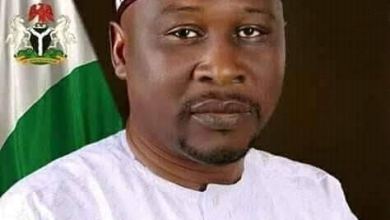Nigeria Backs Renewable Energy Push to Power Digital Transformation
Kindly share this story

Nigeria Backs Renewable Energy Push to Power Digital Transformation
Nigeria is betting on renewable energy and digital innovation to drive economic inclusion, transform rural communities, and prepare its workforce for the future.
Speaking at the World Bank and IMF annual meetings in Washington, the Director-General of the National Information Technology Development Agency (NITDA), Kashifu Inuwa, described clean energy as a “catalyst” for digital inclusion and economic growth.
“Renewable energy is not the destination. It is a catalyst. When there is power, connectivity follows, and that connectivity triggers true transformation,” Inuwa said.
He stressed that access to reliable energy remains crucial for expanding technology-driven services across rural and underserved areas, where electricity shortages have slowed development.
Highlighting practical impacts, Inuwa noted that digital tools powered by renewable energy are transforming lives — from AI-driven farming apps and online platforms for women entrepreneurs to remote digital jobs for youths in rural areas.
“A farmer equipped with a simple app can double his income, send his child to school, and employ others. A young person with internet access doesn’t need to migrate to Abuja or Lagos; he can work from his village and earn in dollars,” he said.
According to him, the country’s push aligns with President Bola Tinubu’s Renewed Hope Agenda, which emphasizes sustainability, diversification, and inclusivity.
Inuwa added that NITDA’s programs are anchored on eight strategic pillars, including digital literacy, innovation, cybersecurity, research, and strategic partnerships — all aimed at boosting Nigeria’s digital economy.
He disclosed that NITDA, in collaboration with the Federal Ministry of Education, is integrating digital literacy into the school curriculum from kindergarten to tertiary level to prepare future-ready citizens.
“Digital competency is now a prerequisite for employment and promotion in the civil service,” he noted.
Through these initiatives, NITDA targets training 50 million Nigerians by 2027 to equip them for the global digital economy.
Also speaking at the forum, Senior Operations Officer for Infrastructure at the World Bank Group, Fowzia Hassan, reaffirmed the Bank’s support for bridging Africa’s energy gap through its Mission 300 initiative — which aims to connect 300 million people to electricity by 2030.
Read also: BIPC Commences Juice Production Test-Run at Revitalized Benfruits Industry
“Access to energy has always been central to the Bank’s development agenda, but with M300, we’ve set a clear target, a deadline, and the resources to make it happen,” Hassan said.
She explained that the World Bank, along with the IFC and MIGA, is strengthening energy regulations and attracting private investment to ensure inclusive access to clean energy.
Hassan also highlighted the importance of gender inclusion, noting that women constitute 32 per cent of Africa’s renewable energy workforce but are underrepresented in technical roles.
“Creating a clean, inclusive, and just energy transition is not just about connecting homes; it’s about empowering people, especially women and youth, to drive Africa’s prosperity,” she said.
The forum underscored the strong link between energy access and digital connectivity as pillars of sustainable development, with Nigeria positioning itself as a leader in Africa’s digital transformation journey.













